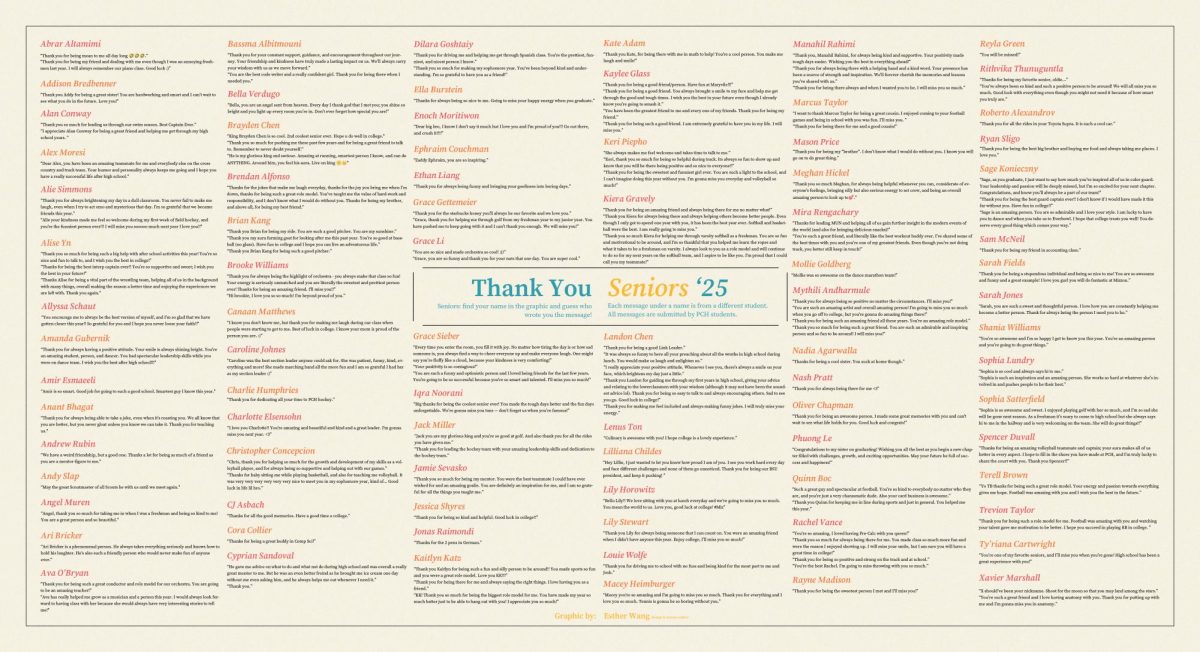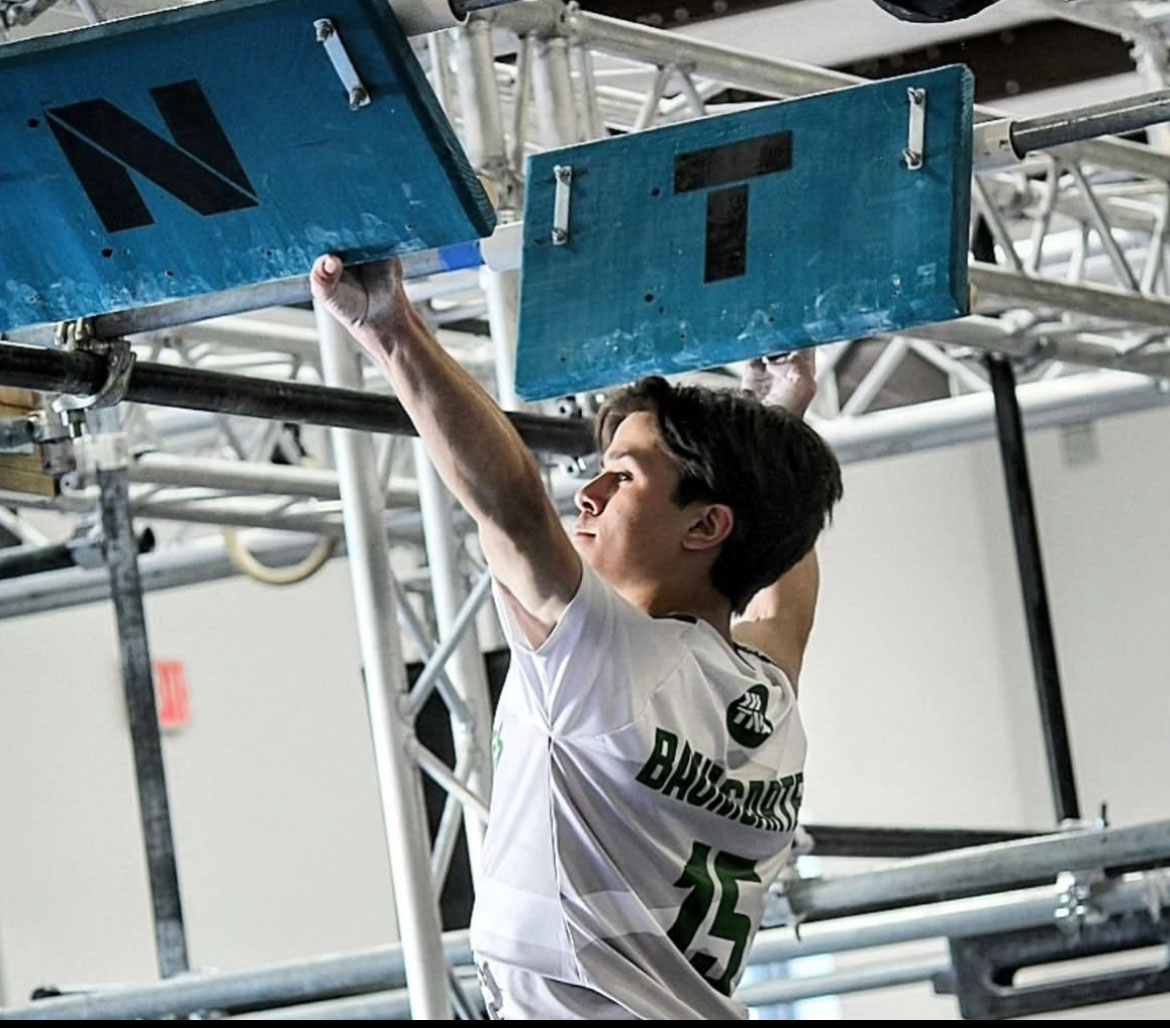With all junk food stripped from the vending machines and school lunches altered to fit the new Healthy, Hunger-Free Kids Act, Parkway has joined the nation toward a healthier future — for the most part.
Despite the effort put into revamping school diets and restricting what can be sold for fundraisers, a steady circulation of junk food is still flowing through the halls. While the policy was enacted July 1, the enforcement in the building has not been as immediate. A few organizations are still hocking sweets during school hours against the national policy.
“Each school gets five waivers, and those waivers are submitted when the school wants to have something like a donut sale or sell candy grams to raise money for an event, or basically wants to sell junk food,” Marlene Pfeiffer, Parkway Director of Food Services said.
Each waiver is valid strictly for one day, and one day only, meaning the school must be selective in what it chooses to allow.
“By no means is selling junk food allowed unless it is during one of those five waiver days,” Pfeiffer said. “Selling candy and chips in the hall is absolutely in violation of the new Michelle Obama policy that Parkway has accepted.”
Pfeiffer said there are consequences for these violations.
“This causes not only the school to get a huge fine, but individuals can be personally fined,” Pfeiffer said. “The government could also take money away from Parkway if they catch people doing this.”
Pfeiffer said that she sent out an email to all Parkway district offices spelling out the new policy and what is and what is not allowed.
“I know that we try to schedule fundraisers so they don’t overlap; that way each sport has a chance to sell what they need to,” Athletic Director John Theobald said. “There are certain things we can’t sell, but I believe they can still be distributed at school as long as it isn’t consumed during school hours.”
Selling cookie dough and pizzas as a fundraiser is completely in coordination with the law due to the fact that these items are either not being eaten during school hours and follow the health guidelines. Even selling cups of coffee follows the law.
“For the coffee shop, we had to abide by the health law,” Future Business Leaders of America sponsor Sarah Lueken said. “We had to have sugar-free syrups, and the cookies are low fat.”
The policy states that if a person wants to just give away junk food that’s perfectly fine, but someone cannot sell it to students during school hours for a profit or fundraiser.
Many coaches and sponsors note, however, that not all organizations are abiding by this policy.
“There is a tremendous amount of fundraising going on in all different fashions,” soccer coach Brian Adam said. “There are a bunch of fundraising opportunities we haven’t even tapped into yet that we will need to explore in order to accommodate the needs of teams that our school cannot provide for us.”
While some sponsors agree that fundraising needs to be come innovative to work around the new law, others would like to see the school uniformly support the wellness efforts.
“I think it’s very sad,” cross country coach Adam Bergeron said. “If you really care, then you model appropriate behaviors. You are the role model and that can be very challenging. However, if we are in known violation of policy, that puts funding at risk. Those are the things that need to be targeted first, no matter how unpopular they might be.”
Adults in the building are not the only ones who are frustrated with the hypocrisy of the enforcement of the wellness guidelines.
“As a student I find it very disappointing that we are constantly being told to become healthier, especially in school, yet we have candy and chips constantly available,” senior Melissa Buerk said. “It just seems like a huge contradiction to everything this school is supposedly ‘trying’ to do. I mean what message are adults trying to convey to us, when they aren’t even following the rules themselves.”
Principal Tim McCarthy acknowledged the disparity between the policy wording and its enforcement.
“I think the expectation is compliance and whether there are areas where we’re not in compliance,” McCarthy said. “I think that’s a point of reflection, and we’re continuing to identify those areas.”
While McCarthy believes that there is reflection to do, he notes that we are in a transition period where hcnages will take place as needed to be in compliance with the new law.
“Ultimately it is my responsibility to regulate what is going around the halls,” McCarthy said. “I’m not sitting here saying it’s someone else’s job. Have I been quick to make sure we are compliant? No. Could there certainly be another approach or could someone criticize me for my less than vigorous implementation? Absolutely. Am I going to make everything cease and desist immediately? Well, I don’t know.”
Until building decisions are made, current practices regarding the sale of items not approved by the wellness act will continue.
Categories:
Wellness policy implemented unequally throughout building
November 16, 2014
Story continues below advertisement
0
Donate to Corral
$100
$500
Contributed
Our Goal
Your donation will support the student journalists of Parkway Central High School. Your contribution will allow us to cover our annual website hosting costs.







